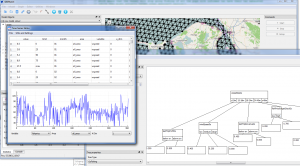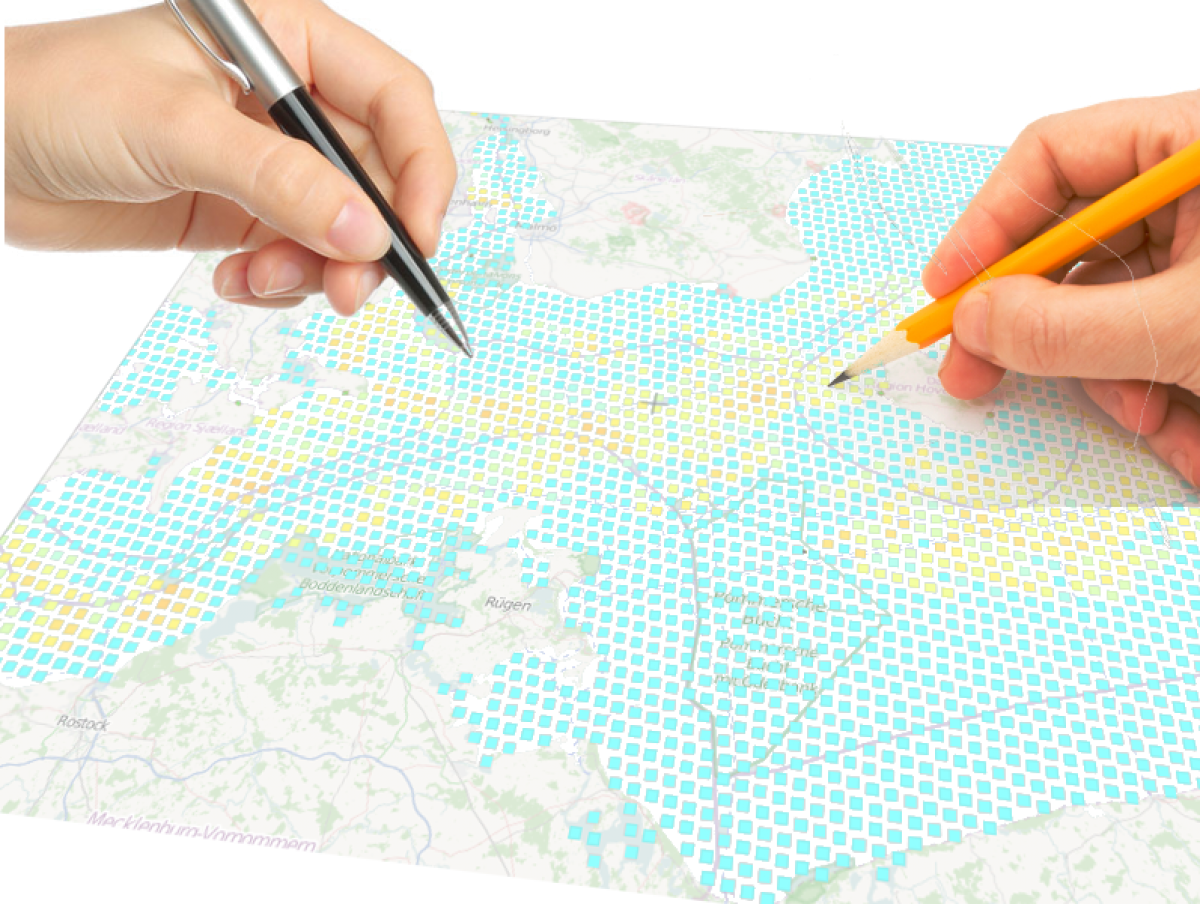Fishermen´s micro-decision-making is challenged by fishery management and marine spatial plans and affects the overall performance of fisheries. Because of individual decisions and tactics for fishing (e.g. selection of gears, place and time) influence catching power, the fishermen have an individual footprint on the harvested stocks and benthic communities.
Also, fishermen have different objectives and strategies influencing economic and impact performance of the fishery for several stocks and ecosystem components and in different areas (e.g. here for carbon footprints, or here for impacts on seafloor). By regulating catch quotas, the deployed effort and potential fishing grounds, both fisheries management, and marine spatial plans can result in unintended consequences and incentives affecting the overall economic and energy performance of the fisheries at stake, which may further undermine the ecosystem approach to fisheries.
We intend to support the fishery sector and the policymakers with a benchmark tool for efficiently evaluating alternative scenarios in individual decision making, by designing decision trees to model when, where, how, and for how long they go fishing.
This allows sensitivity experimentation of several factors determining fisheries including the vessel´s internal states and various external constraints such as spatial and seasonal resource conditions, fish and fuel price, weather conditions and spatial plans. User-made decision trees are embedded within the broader DISPLACE individual vessel-based spatial modelling approach (2014, 71: 366-386 in Can. J. Fish. Aqu. Sci.; Screenshot version 0.7.15)  which offers an evaluation of the consequences of alternative dynamics in vessel movements using information about fishing ground preferences and vessel-specific experienced catch rates.
which offers an evaluation of the consequences of alternative dynamics in vessel movements using information about fishing ground preferences and vessel-specific experienced catch rates.
In order to support a quantitative analysis for the generalization of impacts at the macro-scale from all the micro-decisions taken by the vessels aggregated, a spectrum of decision trees and trigger events are attached to the vessels.
have a look here for a quick overview of the model architecture

Francois Bastardie is a DTU-Aqua Senior Scientist and method developer in the Section of Ecosystem-based Marine Management with a Ph.D. in Biological Science. He has been involved in several national and EU Funded projects developing expertise in spatial fisheries and fisheries databases. He has a strong background in modeling fishing and the bio-economic dynamics including developing agent-based models for combining marine ecosystems and natural resource extraction models, fisheries economics in a mixed fisheries perspective. He has an experience of 10 years leading to more than 35 peer-reviewed publications by conducting scientific-based fisheries management evaluation with scenario-testing evaluation and simulations, including fleet dynamics and consequences on the economy of fisheries, population dynamics and fish stock assessment. He was in charge of the evaluation of some of the EU long-term fisheries management plans with consequent participation to ICES and STECF working groups, including giving advise from regional to international policy makers.

Author: Francois Bastardie
Francois Bastardie is a DTU-Aqua Senior Scientist and method developer in the Section of Ecosystem-based Marine Management with a Ph.D. in Biological Science. He has been involved in several national and EU Funded projects developing expertise in spatial fisheries and fisheries databases. He has a strong background in modeling fishing and the bio-economic dynamics including developing agent-based models for combining marine ecosystems and natural resource extraction models, fisheries economics in a mixed fisheries perspective. He has an experience of 10 years leading to more than 35 peer-reviewed publications by conducting scientific-based fisheries management evaluation with scenario-testing evaluation and simulations, including fleet dynamics and consequences on the economy of fisheries, population dynamics and fish stock assessment. He was in charge of the evaluation of some of the EU long-term fisheries management plans with consequent participation to ICES and STECF working groups, including giving advise from regional to international policy makers.
View all posts by Francois Bastardie
 which offers an evaluation of the consequences of alternative dynamics in vessel movements using information about fishing ground preferences and vessel-specific experienced catch rates.
which offers an evaluation of the consequences of alternative dynamics in vessel movements using information about fishing ground preferences and vessel-specific experienced catch rates.
